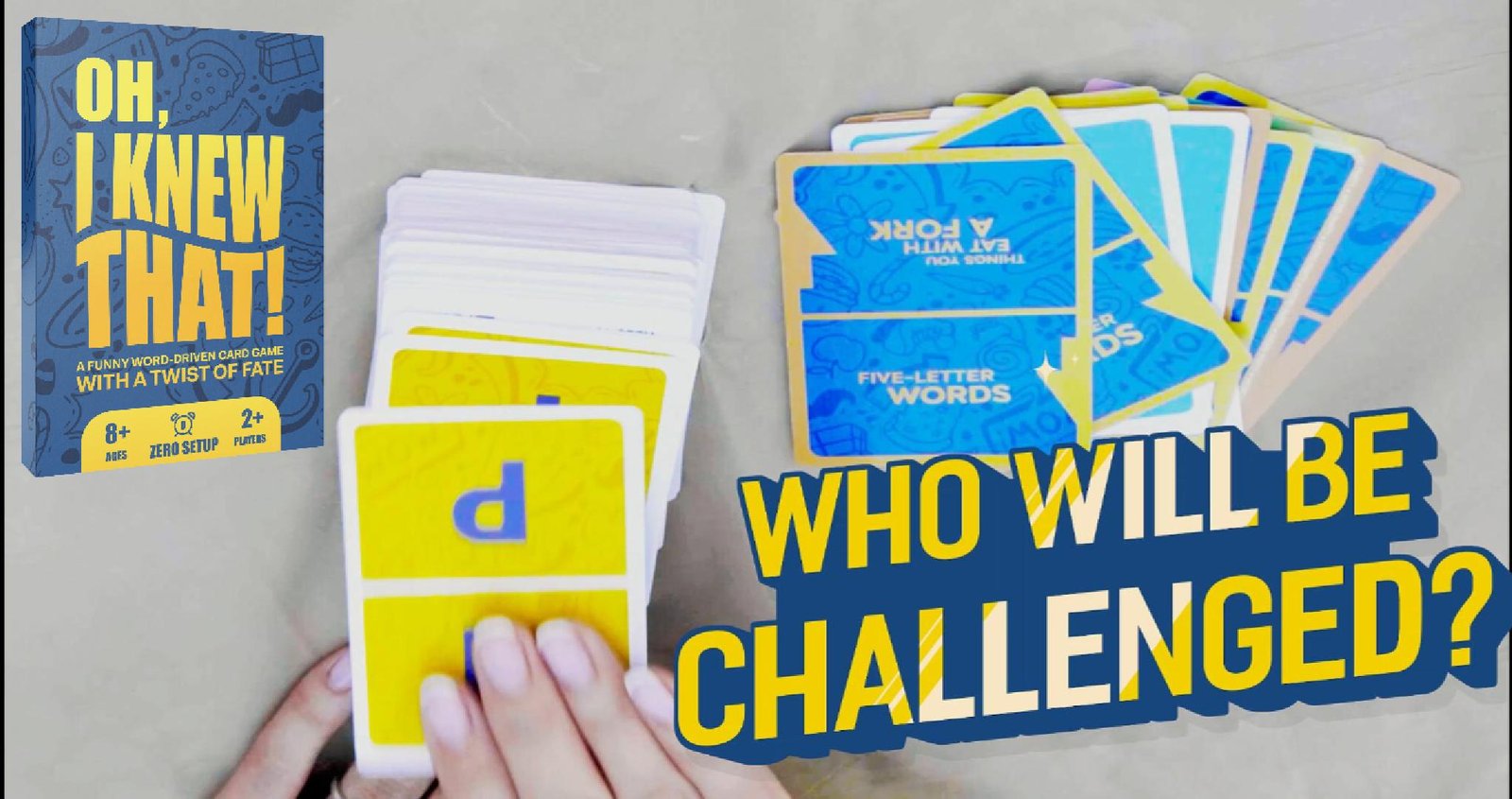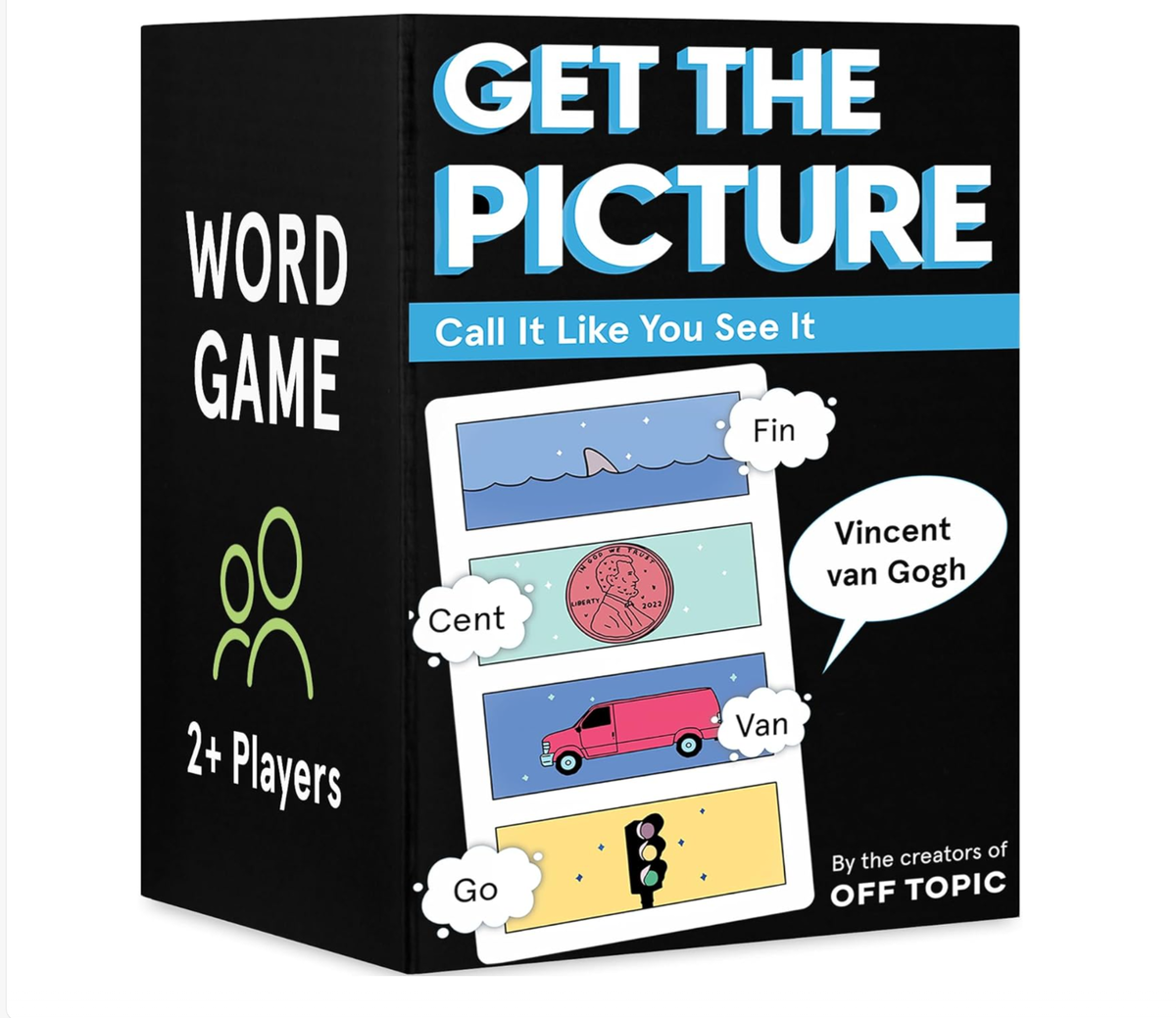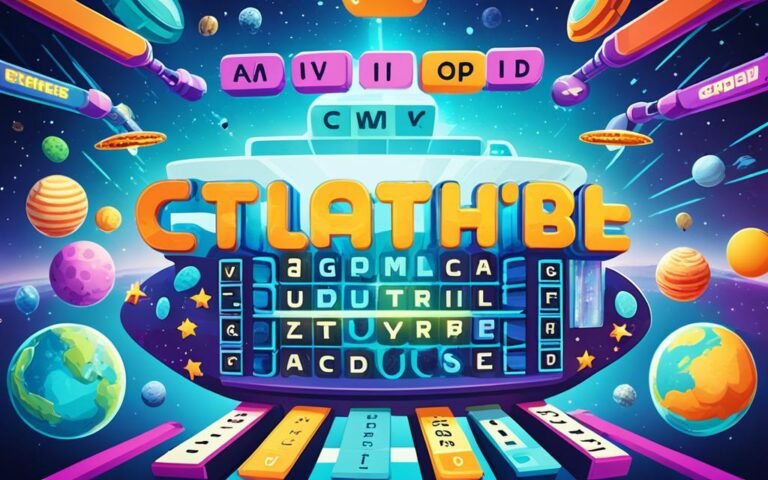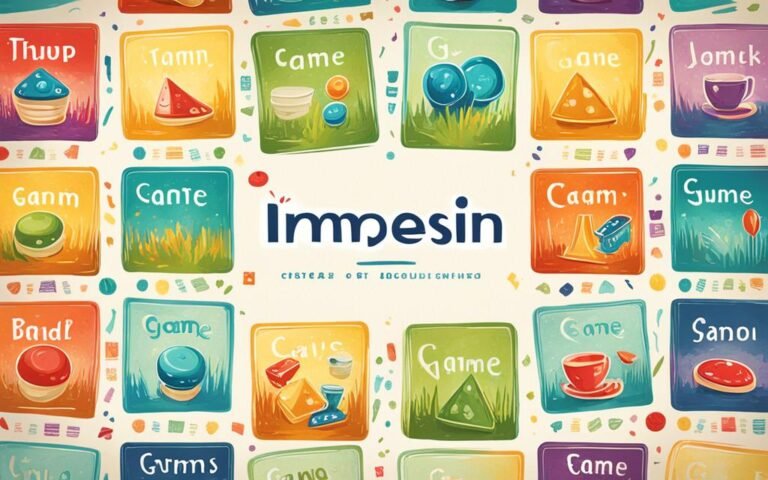In an era where game nights and family gatherings often take center stage, one word card games have emerged as a popular choice. These games offer simplicity paired with endless creativity, ensuring that players of all ages can join in the fun. Whether you’re forming words or guessing them, these games provide an engaging experience that sharpens the mind and encourages social interaction. The thrill of competition is present in every round, making it essential to explore the vast world of one word card games.
What Are One Word Card Games?

One word card games encompass a variety of formats and play styles but share a common thread: they revolve around the use of words, whether for guessing, spelling, or strategizing. These games are designed to be accessible yet challenging enough to stimulate players’ cognitive abilities and promote teamwork.
Defining the Category
At their core, one word card games can be categorized based on how they utilize words. Some focus on individual players crafting words from letter tiles or cards, while others involve players guessing words based on clues provided by their teammates. This duality serves as the foundation for countless variations, giving rise to a wide assortment of gameplay styles.
What’s particularly fascinating about this category is its ability to adapt and innovate. Game developers continually find ways to introduce new mechanics and themes, keeping the genre fresh and exciting. From classic word-building games to contemporary party hits, the landscape of one word card games is as diverse as the players who enjoy them.
Games Using Letter Cards to Form Words
Games that utilize letter cards or tiles often encourage players to create as many words as possible within a set timeframe. These games are not only entertaining but also serve as excellent tools for enhancing vocabulary and spelling proficiency. Players draw letters from a common pool, and the challenge lies in swiftly forming valid words before time runs out.
Take “Scrabble Slam!” for example—a fast-paced version of the classic board game that involves a deck of cards featuring letters. When a word is played, players must quickly replace it with another word using the same letters. This dynamic creates a competitive atmosphere where quick thinking and adaptability reign supreme.
These types of games not only bolster linguistic skills but also develop critical thinking as players strategize which words to form. The excitement of scrambling to find letters stimulates mental agility, making it an intellectually rewarding experience.
Games Using Word/Concept Cards for Clues or Challenges
On the other hand, games that rely on word or concept cards often emphasize communication and deduction. In these games, players must use imagination, wit, and language skills to convey or guess words based on limited information. Classic examples include “Codenames” and “Taboo,” where players rely heavily on their understanding of language nuances and social cues.
Imagine being tasked with describing a word without using certain keywords—this is where creativity shines! Players engage in lively discussions, attempting to infer meaning from context while navigating the pressure of time limits. The social component of these games fosters connection, laughter, and sometimes even friendly rivalry, making them perfect for parties or casual get-togethers.
Overall, one word card games contribute to a rich tapestry of gaming experiences that cater to different preferences and skill levels. With numerous options available, there’s something for everyone.
Popular Examples of One Word Card Games

As we delve deeper into the realm of one word card games, it’s crucial to highlight some popular examples that have captured the hearts of players worldwide. Each game boasts unique mechanics, themes, and objectives that bring players together for hours of enjoyment.
Games Like “Just One” (Guessing a Single Word)
“Just One” has become a household name among fans of word games. Its premise is simple yet highly engaging: players collaborate to guess a single word based on clues given by teammates. However, each player must provide unique hints, as duplicate clues are eliminated.
This collaborative aspect sets “Just One” apart from traditional guessing games. It challenges players to think creatively, balancing between providing helpful clues while avoiding overlap. The tension builds as players work together, resulting in moments of shared joy when a word is successfully guessed or comedic relief when things don’t go as planned.
The beauty of “Just One” lies in its versatility. It can accommodate varying group sizes and is suitable for players of different ages, making it an ideal choice for family game nights or gatherings with friends. The game’s replayability ensures that no two sessions feel the same, as each encounter brings new insights and strategies to the forefront.
Games Using Letter Tiles or Cards (e.g., Bananagrams, Scrabble Slam!)
Bananagrams stands out as a beloved game that combines speed and strategy in a race to build interconnected words. Each player starts with a set number of letter tiles and aims to create a grid of words as quickly as possible. The absence of a board adds a layer of excitement, as tiles can be rearranged at any moment.
Players must think on their feet, analyzing which letters will yield the most significant results while competing against the clock. Bananagrams enhances spatial awareness and vocabulary while providing a lighthearted atmosphere filled with bursts of laughter and friendly competition.
Similarly, “Scrabble Slam!” offers an energetic twist on the classic Scrabble experience. Players compete to replace existing words with new ones using the provided letter cards, showcasing their adaptability and quick-thinking abilities. The rapid pace of play keeps everyone engaged, ensuring that downtime is minimal.
Both games embody the essence of one word card games, encouraging players to forge connections through language while honing their cognitive skills in a playful environment.
Party Games with Word Cards (e.g., Codenames, Taboo variations)
When it comes to party games, few can rival the popularity of “Codenames.” Players split into teams and take turns giving one-word clues to guide their teammates in identifying correct words on the board. The challenge lies in the balance of specificity and ambiguity—how do you lead your team to the right answer while avoiding enemy words?
The strategic nature of “Codenames” promotes teamwork and creative thinking. Teammates must communicate effectively, drawing upon shared knowledge and experiences to decipher clues. This collaborative effort fuels a sense of camaraderie and sparks lively debates, making it an instant hit at gatherings.
Variations of “Taboo” also shine in the world of one word card games. In “Taboo,” players describe a target word without using specific forbidden terms. The humorous miscommunications and clever descriptions often lead to hilarious outcomes, providing entertainment for both players and onlookers alike.
These party games exemplify how language can connect people, creating memorable experiences filled with laughter, suspense, and excitement. Whether it’s through strategic guessing or imaginative descriptions, one word card games ensure that every gathering is a success.
How to Play Different One Word Card Games

Understanding the gameplay mechanics of one word card games is essential for maximizing fun and engagement among participants. With each game offering its own unique rules and objectives, familiarizing yourself with various formats can enhance the overall experience for everyone involved.
Gameplay Mechanics of Guessing Games
In guessing games, like “Just One” or “Codenames,” the focus shifts toward communication and interpretation. Initially, players gather in teams, creating an interactive environment that thrives on collaboration. Team members must employ their collective knowledge to generate clues that can lead their partners to the target word.
In “Just One,” players write down their clues silently, revealing them simultaneously to avoid duplication. This mechanic introduces an element of strategy, as players must consider what words may already come to mind for their teammates. The process of elimination heightens the anticipation as the guessing team attempts to piece together the clues.
“Codenames,” however, requires a more abstract approach. The spymaster provides a one-word clue along with a number indicating how many words are related. Effective communication and clear reasoning become paramount as team members interpret the clues, creating an engaging dynamic that encourages discussions and debates.
Ultimately, mastering the gameplay mechanics of guessing games revolves around understanding the nuances of language and fostering effective communication, making them enriching experiences for players.
Rules for Spelling and Forming Words
In games centered around spelling and word formation, such as Bananagrams or Scrabble Slam!, the rules often emphasize speed and efficiency. Players begin by drawing letters from a common pool or receiving tiles, setting the stage for a competitive race to create words.
In Bananagrams, players shout “Split!” to signal the start of the game. They must quickly rearrange letters to build interconnected grids of words, promoting an exhilarating rush that keeps everyone engaged. The first player to use all their tiles yells “Banana!” to declare victory, leading to celebratory moments filled with triumph.
Similarly, Scrabble Slam! requires players to replace existing words with new ones using the provided letter cards. The frantic pace and need for quick decision-making add layers of strategy, compelling players to think critically about their next move while under pressure.
Understanding the rules for spelling and forming words allows players to embrace the competitive spirit that defines these games, fostering a sense of urgency and excitement that elevates the experience.
Playing Party Games with Word Cards
Party games utilizing word cards thrive on social interaction and teamwork. As players engage in activities like “Taboo” or variations of “Codenames,” the emphasis shifts toward creativity, storytelling, and spontaneity.
For instance, in “Taboo,” the excitement stems from the unexpected and often humorous interpretations of clues. Players must navigate the challenge of conveying their thoughts without revealing prohibited words, sparking laughter and unpredictable outcomes. The role-playing aspect often leads to hilarious situations, making it ideal for larger groups eager for entertainment.
In “Codenames,” teamwork is essential as players brainstorm clues collaboratively. The game unfolds as teams assess risks with selecting words while trying to avoid opponents’ targets. Effective communication becomes key, and the excitement grows as players engage in spirited discussions.
Ultimately, the appeal of one word card games lies in their ability to foster social bonds. Through laughter, strategic thinking, and creative expression, these games create lasting memories that resonate long after the game night concludes.
Where to Buy One Word Card Games
Finding the perfect one word card games is easier than ever, thanks to the multitude of retailers available today. Whether you’re looking for classic titles or the latest releases, there are plenty of options to explore.
Online Retailers (Amazon, etc.)
Online shopping platforms like Amazon provide a vast selection of one word card games, making it convenient to browse through different titles and read customer reviews. These platforms often feature competitive pricing and special deals, allowing shoppers to discover hidden gems at reasonable prices.
Additionally, online retailers frequently offer bundles or packaged sets that include multiple games, catering to those who wish to expand their collection. With user-friendly interfaces and delivery options, purchasing games online has never been easier.
Local Game Stores
Visiting local game stores presents a unique opportunity to immerse oneself in the vibrant gaming community. Many specialized shops host game nights and events, allowing potential buyers to test games before committing to a purchase. This hands-on experience provides invaluable insight into the gameplay, ensuring that customers find the perfect fit for their preferences.
Local game stores often carry a carefully curated selection of one word card games, including indie titles that may not be widely available online. Supporting these businesses contributes to the growth of local communities and fosters relationships with fellow gamers.
Educational Suppliers
Educational suppliers also stock a range of word-based games, especially those aimed at improving language skills. Teachers, parents, and educational institutions can find resources that not only entertain but also promote learning. These games often come with added components that help reinforce vocabulary, communication, and critical thinking skills in a fun way.
By exploring the offerings of educational suppliers, families can discover quality content that enhances learning experiences outside of traditional classroom settings.
Finding Digital Versions of One Word Card Games
With technology constantly evolving, many one word card games have transitioned into digital formats, allowing players to enjoy their favorite titles anywhere, anytime. Mobile apps and online platforms open doors to new gaming experiences that blend convenience with engagement.
Mobile Apps (iOS, Android)
The advent of mobile apps has revolutionized how players access one word card games. Many titles are now available on iOS and Android devices, providing users with instant access to their favorite games. Apps often incorporate interactive features, such as online multiplayer modes, allowing friends and family to enjoy games across great distances.
Moreover, mobile apps frequently receive updates, adding new content and challenges that keep gameplay fresh and exciting. Gamers can engage in solo modes, compete against AI opponents, or challenge friends to head-to-head matches, making mobile versions incredibly versatile.
Online Platforms
Several online platforms host multiplayer versions of popular one word card games, enabling players to connect with others globally. Websites dedicated to board games offer digital adaptations that replicate the original gameplay experience while introducing innovative twists.
These platforms often facilitate matchmaking features, allowing players to join existing games or create custom rooms for friends and family. Social interaction remains at the forefront, ensuring that players can still bond over their love for one word card games regardless of physical distance.
As connectivity continues to improve, these platforms pave the way for a modern, dynamic gaming landscape that embraces innovation while honoring the charm of traditional card games.
Benefits of Playing One Word Card Games
Engaging in one word card games extends beyond mere entertainment; these games offer numerous benefits that enhance cognitive skills, communication, and social bonding.
Improving Vocabulary and Word Skills
Playing one word card games actively cultivates language skills, expanding vocabulary and enhancing spelling prowess. Players are regularly exposed to new words and concepts, often leading to increased familiarity and retention.
Through games like Bananagrams, players can experiment with constructing words, becoming adept at recognizing patterns, and understanding grammatical structures. This active learning approach fosters confidence in language usage, greatly benefiting individuals of all ages.
Furthermore, games that require players to provide clues or guesses challenge them to articulate their thoughts clearly. As players learn to communicate effectively, they sharpen their verbal skills, enriching conversations beyond the game itself.
Enhancing Communication and Teamwork
At the heart of many one word card games lies the emphasis on communication and teamwork. Whether collaborating to guess a word or competing in a race to form them, players learn the value of listening, interpreting body language, and expressing ideas succinctly.
Effective communication plays a pivotal role in creating a cohesive team dynamic. Players develop empathy and understanding as they navigate the intricacies of language, fostering relationships built on trust and cooperation. This social aspect reinforces the idea that games are best enjoyed together, providing opportunities for meaningful interactions.
As friendships deepen through shared experiences, players create lasting memories that extend beyond the boundaries of the game itself.
Great for Social Gatherings
The inclusive nature of one word card games renders them ideal for social gatherings, regardless of age or background. Their straightforward rules make it easy for newcomers to join in, ensuring that everyone feels welcome.
These games spark lively discussions, laughter, and friendly competition, creating an electrifying atmosphere filled with excitement. Whether it’s a family reunion, a casual get-together with friends, or a party celebration, the energy generated by playing games fosters connection and enhances the overall experience.
Ultimately, the joy derived from engaging in one word card games amplifies the significance of spending quality time with loved ones, forging bonds that stand the test of time.
Tips for Enjoying One Word Card Games with Friends and Family
To maximize the enjoyment derived from one word card games, consider incorporating these tips into your game nights. Selecting the right game, adapting rules for various ages, and crafting a relaxed atmosphere can enhance the experience for everyone involved.
Choosing the Right Game for the Group Size
Before diving into gameplay, it’s important to select a game that accommodates the size of your group. Some titles shine in smaller settings, while others are designed for larger gatherings.
For instance, games like “Just One” excel with larger groups, as the collaborative aspect encourages teamwork and camaraderie. In contrast, games like “Bananagrams” are better suited for smaller gatherings, allowing for intense individual competition without overcrowding.
Understanding the dynamics of your group will enable you to choose a game that maximizes engagement, ensuring that everyone has a blast.
Adapting Rules for Different Ages
When playing with family, it’s common to have participants from various age groups. Adapting rules to suit different skill levels can level the playing field and promote inclusivity.
Consider simplifying certain aspects of the game for younger players or introducing additional challenges for older participants to keep things interesting. Allowing everyone to contribute in their own way creates a harmonious experience that accommodates diverse capabilities.
Flexibility is key, as it ensures that all players feel respected and valued, fostering a positive environment.
Creating a Fun and Relaxed Atmosphere
Lastly, cultivating a relaxed and enjoyable atmosphere is essential for maximizing fun during game nights. Encourage laughter, banter, and friendly competition, reminding players that the primary goal is to enjoy each other’s company.
Set up comfortable seating, perhaps with snacks and drinks nearby, to create a cozy ambiance. Taking breaks between rounds can also provide players a chance to recharge and socialize, ensuring that energy levels remain high throughout the night.
Ultimately, embracing a laid-back attitude allows everyone to unwind and focus on enjoying the moment, with the added bonus of strengthening bonds between friends and family.
Comparing Different One Word Card Games
As we explore the diverse world of one word card games, it’s crucial to compare various titles and identify their strengths and weaknesses. By examining categories such as suitability for parties, educational value, and strategic depth, players can determine which games align best with their preferences.
Best for Parties
For party settings, games that promote social interaction and engagement often take center stage. Titles like “Codenames” and “Just One” are exemplary choices, as they encourage players to work together while fostering lively discussions.
“Codenames” excels in its strategic depth while maintaining accessibility, enabling large groups to participate simultaneously. The combination of teamwork and deduction creates an electric atmosphere filled with excitement, making it well-suited for parties.
“Just One,” on the other hand, emphasizes collaboration and creativity. The guessing format keeps players engaged, while the humorous elements often lead to laughter and memorable moments.
Both games represent stellar options for anyone seeking to create an unforgettable party experience.
Best for Learning/Education
In the realm of education, one word card games serve as powerful tools for enhancing language skills and vocabulary development. Games like “Bananagrams” and “Scrabble Slam!” shine in this category, seamlessly blending learning with fun.
“Bananagrams” allows players to practice spelling and word recognition in a relaxed environment. The fast-paced nature challenges participants to think quickly while reinforcing foundational language skills.
Similarly, “Scrabble Slam!” encourages players to experiment with language and improve their cognitive abilities. The competitive spirit motivates players to expand their vocabulary and develop strategic thinking.
Both games provide an effective means of reinforcing literacy skills while ensuring that learning remains enjoyable.
Best for Strategy
For players seeking depth and strategic gameplay, options like “Codenames” and advanced variants of “Taboo” deliver engaging experiences that call for careful planning and execution.
“Codenames” invites players to think critically about their clues and anticipate opponents’ moves, promoting complex strategies that evolve throughout the game. The collaborative nature enhances teamwork, fostering a sense of unity among players as they navigate the challenges together.
Advanced versions of “Taboo” can also introduce strategic elements, forcing players to think creatively to avoid commonly associated words. The combination of strategy and humor makes it a delightful choice for those looking for a more intricate gameplay experience.
By assessing the comparative strengths of various games, players can curate their collections and tailor their game nights to suit specific preferences and atmospheres.
Frequently Asked Questions About One Word Card Games
With the increasing popularity of one word card games, it’s natural to have questions about their suitability, gameplay, and differences compared to other types of games. Below, we address some common inquiries to provide clarity and guidance for prospective players.
Are they suitable for all ages?
Yes, one word card games cater to a diverse range of age groups, making them suitable for family gatherings and parties. Many titles feature adaptable rules that allow players of varying skill levels to participate.
Games like “Just One” and “Bananagrams” are particularly accessible, as they encourage creativity and collaboration without requiring extensive prior knowledge. Families can enjoy quality time together, bridging generational gaps through shared gaming experiences.
Can they be played solo?
While many one word card games thrive on social interaction, some titles offer solo modes or can be adapted for individual play. For instance, Bananagrams can be played alone by attempting to create the largest grid of words possible.
Digital versions of some games also provide solo options, allowing users to hone their skills and practice without needing a full group.
However, the true joy of one word card games often lies in the camaraderie and connection formed while playing with others.
What’s the difference between card games and board games?
The distinction between card games and board games generally lies in the components used for gameplay. Card games primarily rely on decks of cards as their main mechanic, while board games typically incorporate a physical board alongside pieces or tokens.
However, both formats can share similarities. For instance, many modern board games incorporate card elements within their mechanics, blurring the lines between the two categories.
Ultimately, the term “card games” encompasses a subset of games designed to focus on wordplay and communication, making them distinct yet complementary components of the broader gaming landscape.
Conclusion
As we’ve explored, one word card games offer a wealth of entertainment, creativity, and social interaction for players of all ages. From collaborative guessing games to strategic word-building challenges, the versatility of this genre ensures that there’s something for everyone to enjoy.
The benefits of engaging with one word card games extend beyond mere fun; they enhance vocabulary, communication skills, and social bonds, making them valuable additions to any game night. With numerous titles available both online and in stores, players can easily find options that cater to their interests and preferences.
Whether you’re hosting a casual gathering or a lively party, one word card games are sure to create lasting memories filled with laughter and connection. So gather your friends and family, pick a game, and let the fun begin!
Looking for more brain-bending challenges? Explore a variety of word games right here!




